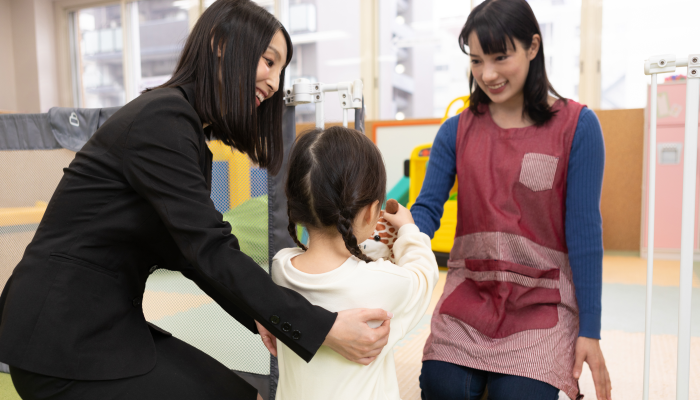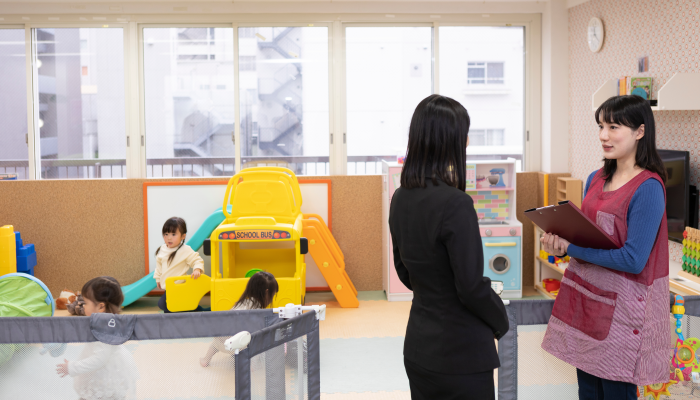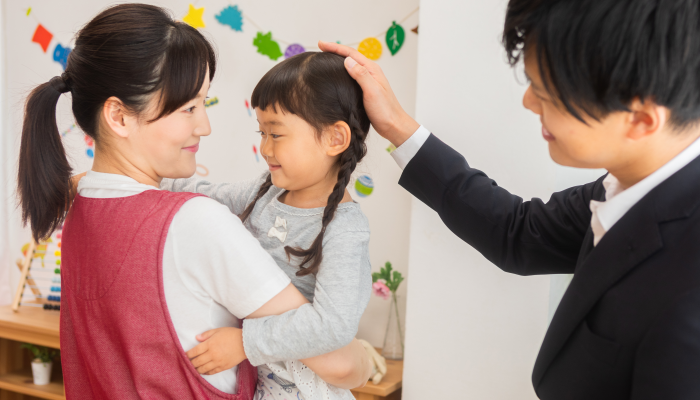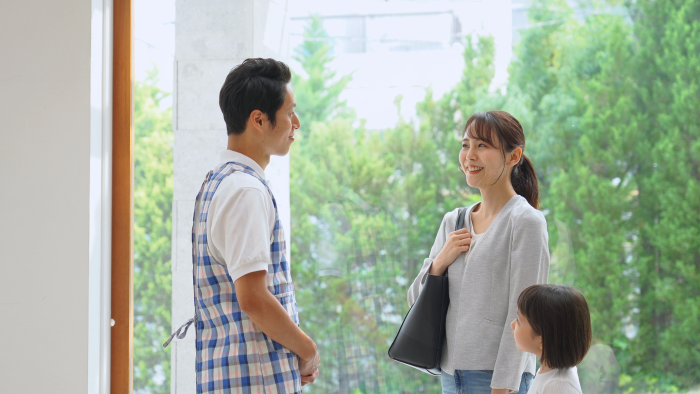How To Build a Relationship With Your Child’s Special Ed Teacher

- Special education teachers face unique challenges, including diverse student needs and resource and policy constraints.
- Parental understanding and support enrich the educational environment for students and educators alike.
- Open, respectful communication and a collaborative approach can create a more positive relationship.
Special education teachers can transform your child’s life.
Building a solid parent-special-ed-teacher relationship will unlock incredible possibilities for them. This involves more than just meetings and progress reports.
It’s about building a partnership that supports your child’s unique needs and promotes their development, which starts with understanding the role and responsibilities of your child’s teacher.
Understanding the Role of a Special Ed Teacher

Understanding the role your child’s special education teacher plays can help you collaborate more effectively and create a supportive learning environment for your child’s academic, social, and emotional growth.
The Special Ed Teacher’s Responsibilities
Special education teachers take on a multifaceted role that extends beyond traditional teaching. They need to adapt their strategies and use different techniques to address the learning styles and abilities of every student in their class.
Another responsibility includes aligning lesson plans with their students’ Individualized Education Programs (IEPs). Your child’s IEP outlines the specific goals of their educational journey.
From hands-on activities to visual aids and personalized projects, your special needs child’s teacher will apply the learning material in a way that resonates with them. If your child’s abilities and needs change, teaching methods will adjust.
Special ed teachers also need to assess children on a regular basis and consistently communicate with parents.
Challenges Faced by Special Ed Teachers
One of the main hurdles special ed teachers face is balancing diverse needs within the classroom. Students typically exhibit a broad spectrum of learning abilities and disabilities. Managing this diversity is particularly challenging since teaching strategies need to be inclusive.
A sense of community is crucial in helping special needs children feel understood, respected, and empowered.
Problems also arise in the administrative and policy realms. Special education teachers often have limited resources, and policy constraints may prevent them from implementing effective learning strategies.
Regardless, special ed teachers are resilient and resourceful. They find creative solutions to maximize the impact of classroom teaching and ensure their students receive the best possible support.
Your involvement and willingness to form a positive relationship with your child’s teacher can make their task more manageable, beginning with your initial meeting.
First Impressions Matter

The first interaction with your child’s special ed teacher will likely be during your IEP meeting. Preparing for this is essential to form a partnership that will support your child’s unique learning needs.
Take time to go over your child’s record and understand their specific goals. This shows you’re committed and sets the stage for effective collaboration.
The IEP meeting is a chance for you and your child’s teacher to share insights, discuss goals, and lay the groundwork for your child’s education. You should stay focused, listen carefully, and bring up any concerns.
When communicating, be respectful and clear. While you are the parent, special ed teachers have more experience in the field. How you approach them can impact future collaboration.
Establishing Communication Preferences

Open communication and mutual respect will ensure a positive ongoing relationship.
Once a learning framework is created, you should establish communication preferences. A transparent and efficient flow of information will ensure proper support for your child’s needs.
Collaboratively decide how and how often you’ll communicate. You can:
- Regularly meet
- Call
- Use communication apps
Setting boundaries and respecting private time is equally important. You should establish clear expectations for response time, meeting schedules, and appropriate communication channels.
Overwhelming educators can hinder their ability to provide your child with the best education possible.
Regular Check-Ins and Updates

Continued growth and student success rely on regular check-ins and updates throughout the school year.
Your special needs child will only thrive if a positive parent-teacher relationship exists where transparency and an informed decision-making process is prioritized.
Regular check-ins make it possible to discuss your child’s current challenges, get an update on their academic and developmental progress, and offer insight.
Without it, you can’t celebrate, set new goals, or ensure your child’s educational needs are met!
Practical communication tools are the backbone of maintaining ongoing collaboration. You should chat with your child’s special ed teacher about communication methods that allow for regular updates and are accessible and convenient.
Whether it’s a quick email exchange or a scheduled phone call, your agreed-upon communication method should ensure a continuous flow of information. Face-to-face meetings are equally important. These usually provide an opportunity to discuss matters in more detail than an email or text allows.
In-person meetups typically work best, but a video call is sufficient if your schedules don’t allow for this.
Participating in the IEP Process
Participating actively in IEP meetings will help you develop more effective communication with teachers and other professionals involved.
It also helps you learn and understand the IEP process so you can share information and offer suggestions that you believe will benefit your child.
You’re the only one who truly knows your child’s strengths, weaknesses, and behavior.
Insight from the home perspective regarding these, together with educator observations in the school environment, will help create practical and realistic goals for your special needs child.
Collaboration will also help you develop skills to support your child’s learning at home.
Supporting the Teacher’s Efforts

Your involvement in student activities play an important part in your child’s education. It not only supports their teacher but also allows you to better understand the classroom environment and your child’s needs.
Volunteer and Classroom Support
Being a hands-on parent can result in better communication with teachers and other school personnel, which may benefit your child’s academic progress. Kids who see their parents are deeply involved are often also more motivated to cooperate and do well in school.
Researchers confirm this in various studies, including Parent Involvement and Student Academic Performance: A Multiple Mediational Analysis11. Topor, D. R., Keane, S. P., Shelton, T. L., & Calkins, S. D.. Parent Involvement and Student Academic Performance: A Multiple Mediational Analysis. Journal of Prevention & Intervention in the Community. 2010;38(3), 183–197. https://doi.org/10.1080/10852352.2010.486297 , published in 2011. This study examined the link between academic performance and parental involvement.
You can volunteer for special events and field trips or be available to assist in student activities like reading, organized play, or art. Contributing resources or different materials is another form of parental involvement that creates a better learning experience for your child and all students.
Special ed teachers often face resource shortages which can affect children’s education. You can supply art materials and books and contribute financially towards special needs equipment.
Reinforcement at Home
Keeping strategies by your child’s teacher in the classroom and those implemented at home equal ensures a supportive learning environment for your child.
You should always communicate with their teachers to know what they’re doing and how you can reinforce skills learned at home.
Supporting your child in homework assignments, reinforcing skills, and keeping routines consistent can help your child and their teacher reach their goals.
Dealing with Disagreements

While you and your child’s special ed teacher are on the same team, disagreements can sometimes arise between both the parents and teacher. When this happens, there are some ways to address your concerns appropriately and constructively.
Approach Concerns Constructively
Parental and educator concerns should always be discussed in an open and respectful manner.
If you’re worried about your child’s development or academic progress, it’s essential to schedule an appropriate time and setting where both you and their teacher are comfortable and have time for constructive discussion.
Try to express concerns without placing blame, as this can provoke defensiveness and hostility. You should also be clear on your concerns and that you’re looking for solutions in collaboration with your child’s teacher and actively listen to their perspective.
Once you’ve decided on a solution, discuss all strategies and resources needed and ensure that it’s set to benefit your child’s educational experience.
Seek Mediation When Needed
If disagreements are not resolved, requesting mediation is a good idea.
A mediator or educational consultant can bring new perspectives and facilitate discussions so you and your child’s teacher can find mutually agreeable solutions.
School counselors or administrators often receive conflict resolution and mediation training. Reach out to them if you need help.
Using trained school staff as mediators could strengthen relationships between you and the school.
They also have the best knowledge of available resources and additional professional support to help you and your child’s teacher make the best decisions for your child.
If you disagree with internal mediation results, you should request external support from professionals who know your child’s disabilities and needs.
Celebrating Success Together

Acknowledging that your child’s special education teacher contributes to their success will strengthen your partnership.
Educators are often underappreciated. Showing gratitude and sharing positive feedback can keep them motivated to continue their dedicated work.
You can show appreciation for their efforts by:
- Writing thoughtful notes.
- Expressing this during meetings by sharing specific examples of how they’ve helped your child.
- Taking part in school-wide recognition events like Teacher Appreciation Week.
- Being an ally for the teacher.
- Giving thoughtful gifts.
Connecting with other parents in the special ed community is a great way to connect with people who understand your challenges. There’s no better way to get advice and encouragement!
These relationships can also provide your child with social opportunities.
Within the special ed community, you will have access to resources like support groups and educational workshops where you can learn about new therapies and treatments that might improve your child’s quality of life.
Building a community of support is also one way you can actively contribute to creating a supportive environment for your child and their teacher.
When you connect with other parents in the school community, you can get them involved in parent-teacher associations, organize events to celebrate student-teacher achievements, and initiate new collaborations that create community and shared success.
Building a Positive Relationship with Special Ed Teachers

Parent-teacher collaboration that includes addressing issues constructively and celebrating successes lay the foundation for your child’s progress.
This also involves engaging in a way that respects the teacher’s expertise while advocating for your child’s needs.
Remember, if this partnership succeeds, your child will have the proper support for their academic and personal growth.
As a team, you and your child’s teacher can unlock their full potential, ensuring they thrive in and out of the classroom.
References
- Topor, D. R., Keane, S. P., Shelton, T. L., & Calkins, S. D. (2010). Parent Involvement and Student Academic Performance: A Multiple Mediational Analysis. Journal of Prevention & Intervention in the Community, 38(3), 183–197. https://doi.org/10.1080/10852352.2010.486297

Related Posts

Eye Conditions and Syndromes, Visual Impairment
Neuralink Announces Plans to Restore Sight to the Blind with Brain Chip
Elon Musk’s company Neuralink has announced plans to begin human trials of its new “Blindsight” brain chip by the end of 2025.

IEPs
What Should I Bring to My Child’s First IEP Meeting?
Prepare for your child's first IEP meeting with confidence! Discover exactly what documents to bring, including educational records, medical info, and questions to ask.

Special Needs
5 Spring Cleaning Tips for Families of Children with Disabilities
Spring cleaning is an opportunity to create a more accessible, organized, and supportive space for your child with disabilities. Declutter, deep clean, and refresh!